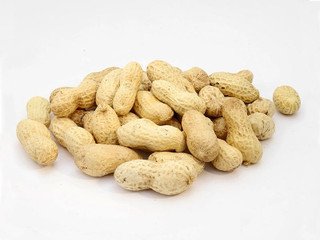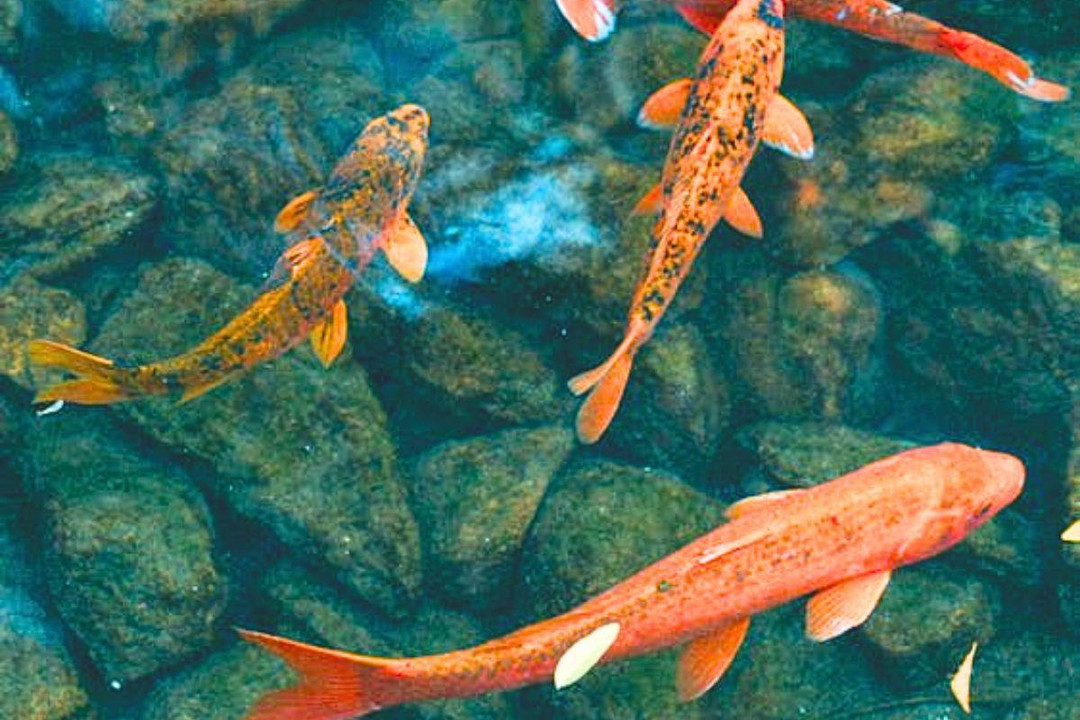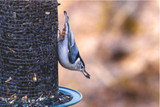Signs of Overfeeding Fish: How to Spot and Prevent it
Do you know that fish are more likely to die from overfeeding than starvation?
One of the most prevalent mistakes that almost every novice aquarist makes is overfeeding! This kind of mistake is common since many are unaware that it could have serious repercussions, including the death of fish.
Due to overeating, various issues arise both for the fish and the aquatic environment. Excess food can rot, resulting in poor water quality, which can cause stress and diseases in fish. Therefore, it is critical to understand your fish breed's dietary requirements and feed them accordingly. The three basic causes of overfeeding are:
On the contrary, the stomachs of these microscopic organisms are so small that they can’t handle too much food. Thus, to avoid these, you need to be aware of the signs of overfeeding fish, the problems that could occur, and how to prevent them.
Signs of Overfeeding
- Algae Blooms: If your aquarium water turns green, brown, or cloudy with a foul smell, it's likely due to excess food not consumed by your fish. This decomposition releases nutrients, creating an ideal environment for algae to thrive.
- Floating Pellets: Uneaten pellets floating on the surface indicate that your fish have finished feeding and aren't interested in more food. This can happen if you have overfed them.
- Dirty Gravel: Overfeeding leads to excess waste production, turning your fish into "poop machines." Consequently, you will find yourself needing to vacuum the gravel more frequently as organic gunk accumulates, fostering harmful bacteria growth.
- Cloudy Water: Cloudiness in established tanks is often a sign of overfeeding, as it indicates a bacterial bloom. This can stress out your fish and lead to health issues.
Consequences of Overfeeding
Low Oxygen Levels
When organic material (uneaten food and fish waste) decomposes, it is an aerobic process that consumes oxygen and emits CO2. This means that there is less dissolved oxygen in the tank or pond for the fish to consume.
Ammonia Problems
Overfeeding increases ammonia levels in the water, which is harmful to fish. It can stress them out, affect their gills, and make them more susceptible to diseases.
Nitrite Problem
Another overfeeding fish symptom is that it can cause nitrite problems in the tank. The biological filter converts ammonia into nitrite, which is highly toxic to fish.
Fin Rot
Fin rot causes the fins to appear moth-eaten and shaggy. It most frequently occurs when fish are stressed, which is a common side effect of overfeeding.
A Fatty Liver
Fatty liver, also known as hepatic lipidosis, is a disease more typically found in African cichlids and rainbowfish that is caused by overeating. It impairs liver function and can lead to the fish's death.
Planaria
Planaria (flatworms) are little white or tan worms that might indicate poor water quality. They are most typically found in tanks that have been overfed. They will consume fish eggs despite the fact that they are typically thought to be safe.
Clogged Filters
Filter systems remove waste and break down products from water; however, excessive leftover food can cause clogged filters. Uneaten food and waste items can accumulate on the filters, continuing to manufacture harmful chemicals and clogging the filters while limiting their ability to function even further.
How to Prevent Overfeeding
Feed The Proper Amount
The easiest technique to figure out how much to feed your fish is to observe them at regular intervals while they eat. Add food in small amounts at a time (for example, three flakes per fish). If all of the food has been consumed within a few minutes, feed a small portion extra. The normal rule of thumb is to only feed them what they can eat in 4-5 minutes. Anything left over after 5 minutes is unlikely to be eaten again.
A Common Mistake Is To Feed Based On Tank Size
Neglect adding extra food to a larger tank, even though it has the same or fewer inhabitants than the smaller tank. Always feed according to the quantity of fish, not the size of the tank. Spread the food evenly across the water's surface to allow more fish to feed simultaneously.
Feed The Right Foods
Feeding incorrect, poor quality or stale fish food can cause malnutrition and result in waste because the fish will not consume it. Choose the right form, for example, flake or pellet. Some fish require floating food, whereas others favour food that sinks. Research your species' dietary patterns and feed accordingly.
Remove Uneaten Food
If there is any uneaten food remaining from a feeding, use a siphon or fine net to remove it. Whatever the size of your filtration unit, it was not designed to solve all of the difficulties associated with overfeeding.
If you are certain that overfeeding has occurred, do a partial water change by siphoning 25% of the water from the tank's bottom. Using the siphon, collect as much debris from the bottom layer as possible.
Include Scavenging Inhabitants
Scavenger fish (catfish and loaches) and invertebrates can help eliminate some of the uneaten food that settles at the bottom of the tank or pond. They are not a "fix-all" solution, but they can help remove food that falls into unreachable sections of the tank, which makes siphoning or cleaning difficult.
Conclusion
Overfeeding can be detrimental to your aquatic pets. It has an impact on the fish's health and reduces the aquarium's aesthetic value. Therefore, being aware of the overfed fish symptoms, feeding the proper amount at the right time, and with the right food is very crucial. So, keep the above points in mind to create a pleasant aquarium ambience
Recommended products
Explore Popular Articles
-
Top 11 Yellow Birds in Britain and the UK to Attract in Your Garden
15th Dec 2025Yellow birds bring a splash of colour and cheer to any garden. Observing these birds can be both rel
-
Should You Feed Birds Every Day? A Complete Guide on Feeding Birds
15th Dec 2025At Kennedy Wild Bird Food, we believe that understanding how to care for garden birds is as importan
-
How Sunflower Seeds Can Improve Your Bird's Health
14th Jun 2024Birds are quite attracted towards sunflower seeds, but have you ever wondered about sunflower seeds'














